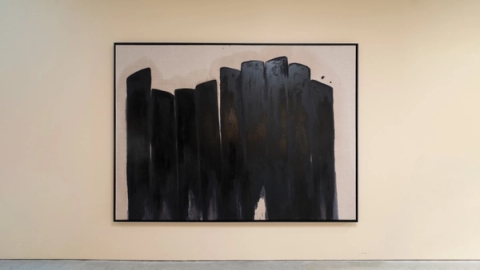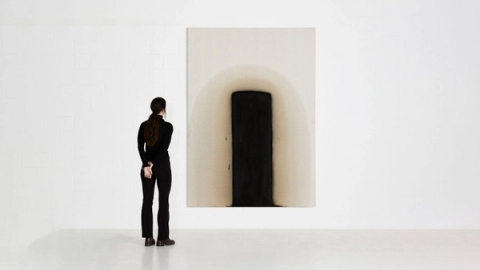My Enquiry (0)
No artwork has been selected.
Please choose an artwork to enquire.
Enquiry Submitted
Thank you for your enquiry and interest in our artists’ work. A member of the gallery team will respond shortly.
000%
13 September - 9 November 2024
Marking South African artist Alexandra Karakashian’s first solo in Los Angeles, Beneath the broken sun encompasses immense, monochromatic abstract paintings. Using engine oil, black pigment, charcoal, salt and oil paint on canvas and linen, Karakashian employs non-conventional materials and process-led making to meditate on concepts of loss, exile, and individual and collective grief.
While painting is the major vehicle for this meditation, Karakashian’s works expand beyond this given designation. Her canvases are active explorations, coming into being with a sustained aliveness that feels at odds with traditional perceptions of the medium’s capacity. These vast, dichotomous canvases explore the possibilities of how paintings can move and operate in space. Relinquishing representational form or narrative justification, the intensity and simplicity of each work compels in its viewer an abundant interiorised experience, shifting between sensations both vivid and subtle, tranquil and vexing.
Some of Karakashian’s gestures appear as scars, swathes of dense black, or monolithic columns of light-absorbent depth. Others are the formal inverse: blackened paint and oil mask the plane almost entirely as minimal strobes of canvas remain, appearing as luminous blasts of light. Karakashian’s black is potent. It is a colour bountifully signifying resistance, death, fear, mourning, solace, restraint and the mythic magic of what happens in the dark. The engine oil seeps into the fine warp and weft of the canvas material, forming soft auras around each gesture. This entropic movement cannot be contained; its field of expansion is left to the consequence of fate long after the artist’s physical engagement with the work has ended.
The aesthetic purity of Karakashian’s practice has been likened to the scale and density of the Colour Field paintings of Abstract Expressionism. A lesser-known – yet potentially more apt –comparison can be made with the meditative style of Dansaekhwa or Korean monochrome painting. Dansaekhwa’s approach to abstraction emphasized the physicality of the artist’s engagement with the painting’s surface, intensifying the value of improvisation and experimentation, dilating the sphere of creative contact from two dimensions to three.
Karakashian’s choice of materials prompts further examination. Engine oil is viscous in its associations. We think of oil as something ‘crude’, ubiquitous in its functional usage and complicit in macro-processes of extraction that have grave consequences to human and natural life. This material is heavy – upon the painting’s surfaces, and upon the world. Writing in 2015, theorist Jane Bennett penned a new perspective on the perceived estrangement between inert, inanimate materials and the vital matter of human beings. Bennett and Karakashian similarly advocate for the notion of ‘vibrant matter’ – the idea that all ‘things’ hold an energetic current and power. Through this lens, the hubris of man’s fantasies of ‘consumption and conquest’ are illuminated as the line drawn between self and object becomes less opaque.
It is here, in the expansive space of abstraction, experimentation and vibrant materiality that the artist’s practice lives. Resisting the demand to theorise or panegyrise her work, Karakashian’s practice surrenders itself to the discomfort – and unbounded possibility – of the unknown and indefinable. This dissolution of binaries rejects the value judgements we attach to polarities of light and dark, emptiness and fullness, subject and object, life and death. In the abstracted fields of Karakashian’s work, this disintegration holds the philosophical knowing that these binaries are the circular sensation of the same experience.
Artist
Alexandra Karakashian
Works
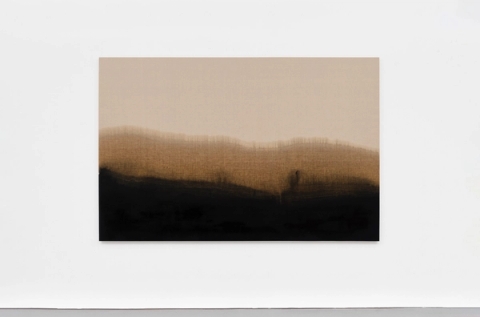
Alexandra Karakashian
final hour I, 2024Used engine oil, charcoal, black pigment on canvas
70.9 x 108.3 in. | 180 x 275 cm
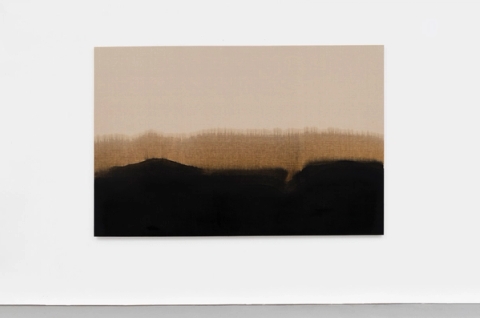
Alexandra Karakashian
final hour II, 2024Used engine oil, charcoal, black pigment on canvas
70.9 x 108.3 in. | 180 x 275 cm
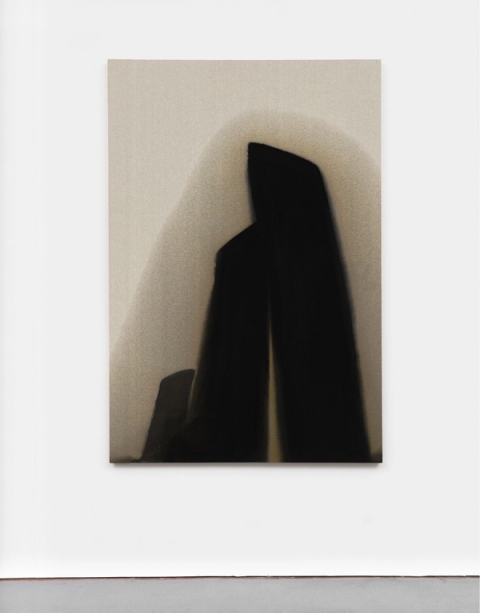
Alexandra Karakashian
Anchor, 2024Used engine oil, black pigment, charcoal, oil paint on canvas
77 x 52.2 in. | 195 x 132.5 cm
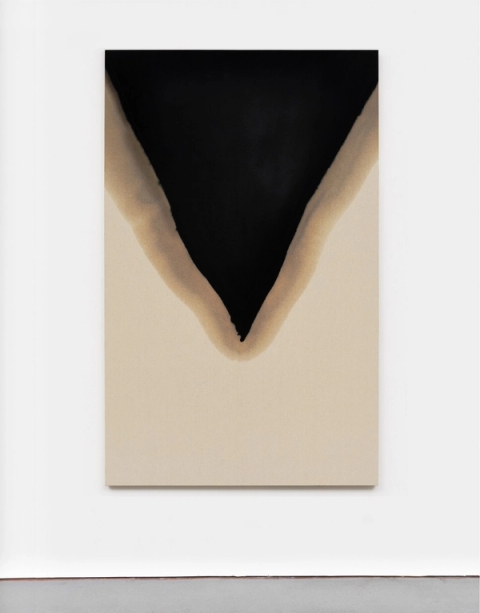
Alexandra Karakashian
breach, 2024Used engine oil, charcoal, black pigment on canvas
82.7 x 52.2 in. | 210 x 132.5 cm

Alexandra Karakashian
beneath the broken sun, 2024Used engine oil, charcoal, black pigment on canvas
208.6 x 82.7 in. | 265 x 210 cm
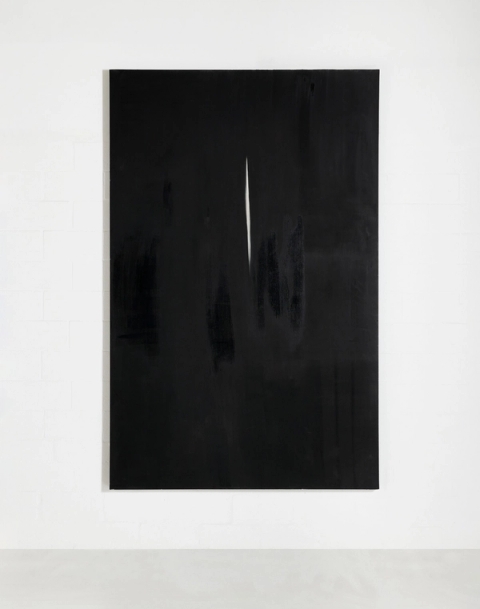
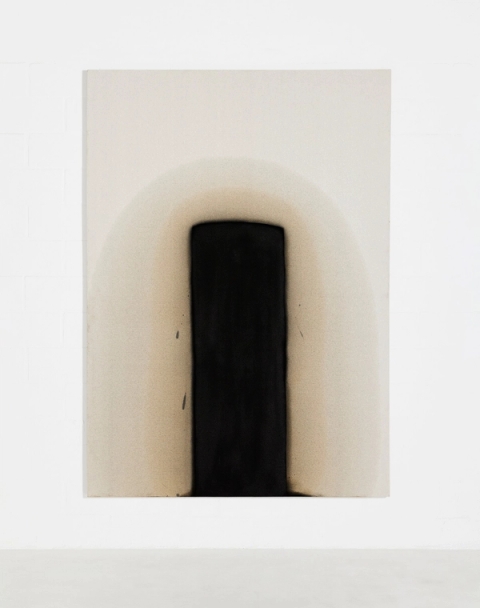
Alexandra Karakashian
console, 2021-2024Used engine oil, charcoal, black pigment on canvas
94.7 x 67.1 in. | 240 x 170 cm
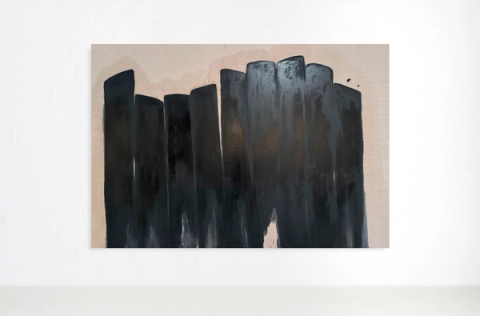
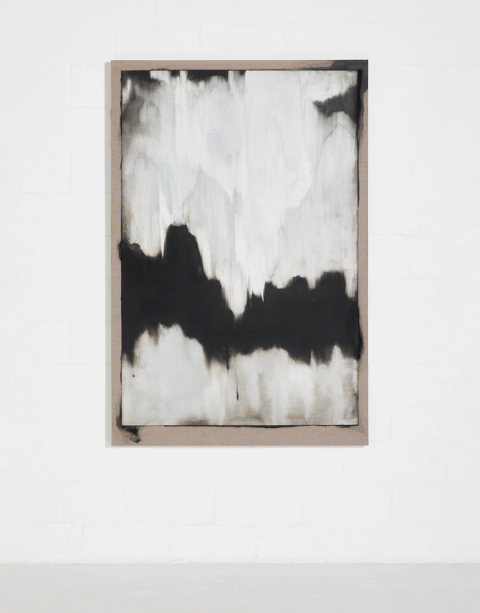
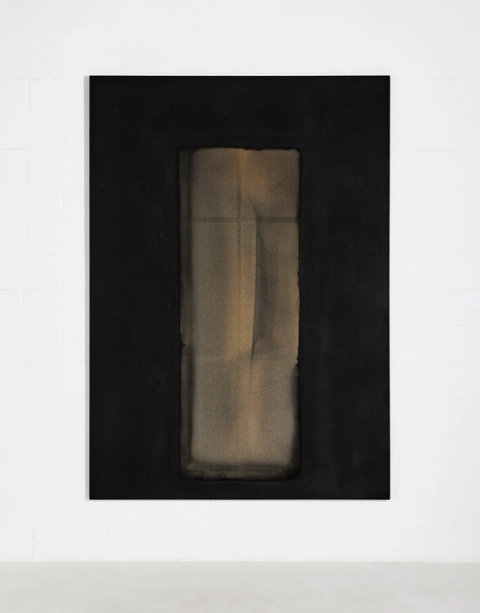
Alexandra Karakashian
where you lay, 2022-2024Used engine oil, black pigment on canvas
94.5 x 66.7 in. | 240 x 169.5 cm
Sold
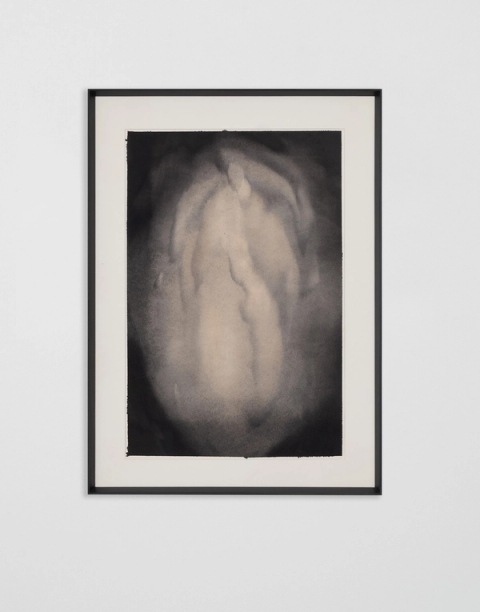
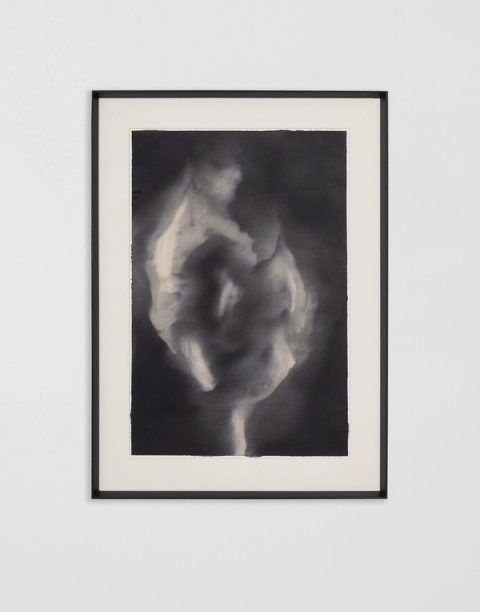
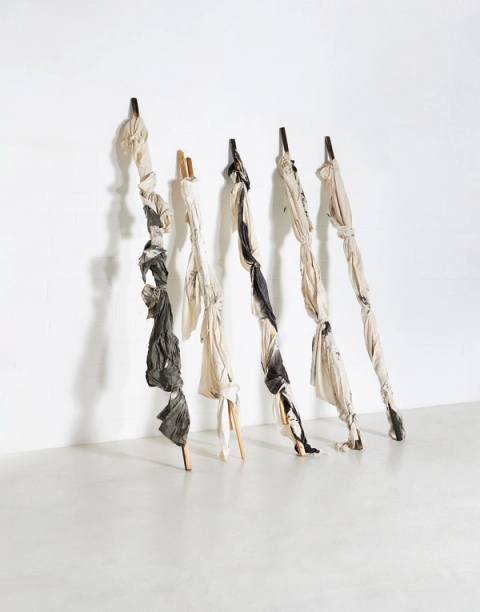
Alexandra Karakashian
orphans of recent events, 2024Canvas, used engine oil, oil paint, timber
140.6 x 37.4 x 37.4 in. | 357 x 95 x 95 cm
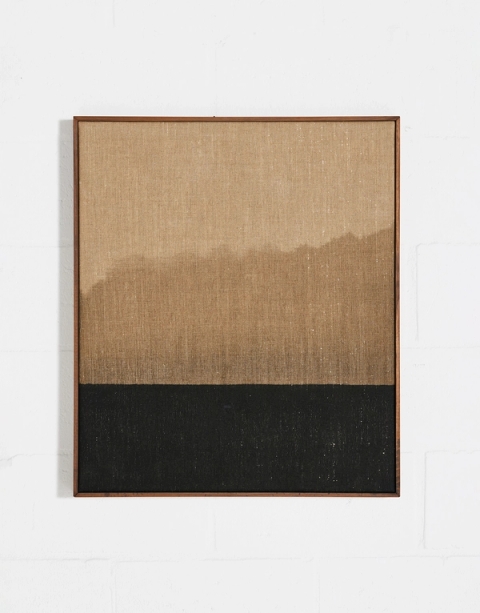
Alexandra Karakashian
passing through, 2016-2020Used engine oil on linen
27.6 x 24.4 in. | 70 x 62 cm
Sold
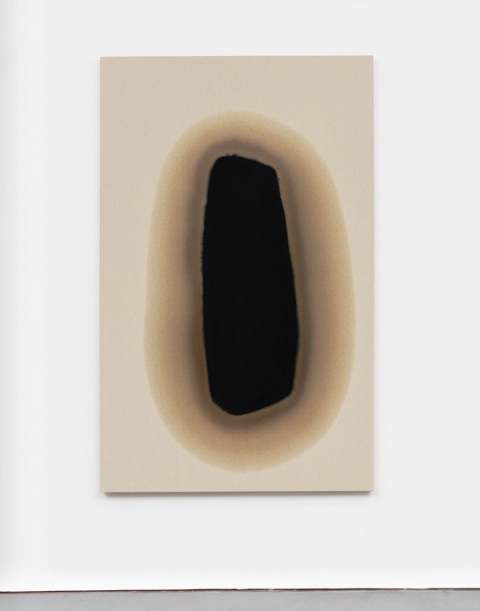
Alexandra Karakashian
wake, 2024Used engine oil, black pigment on canvas
82.7 x 52.5 in. | 210 x 132.5 cm
Sold




